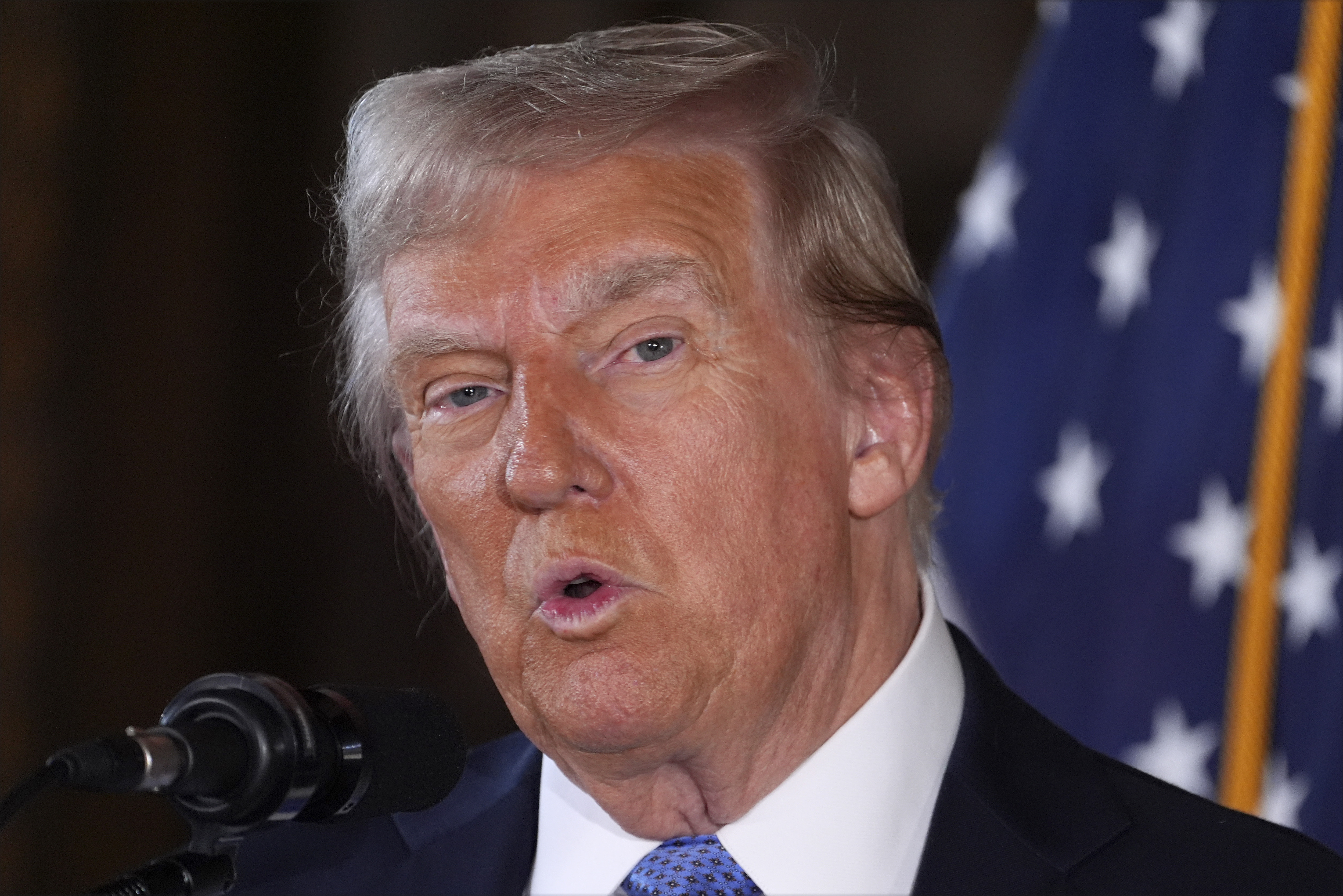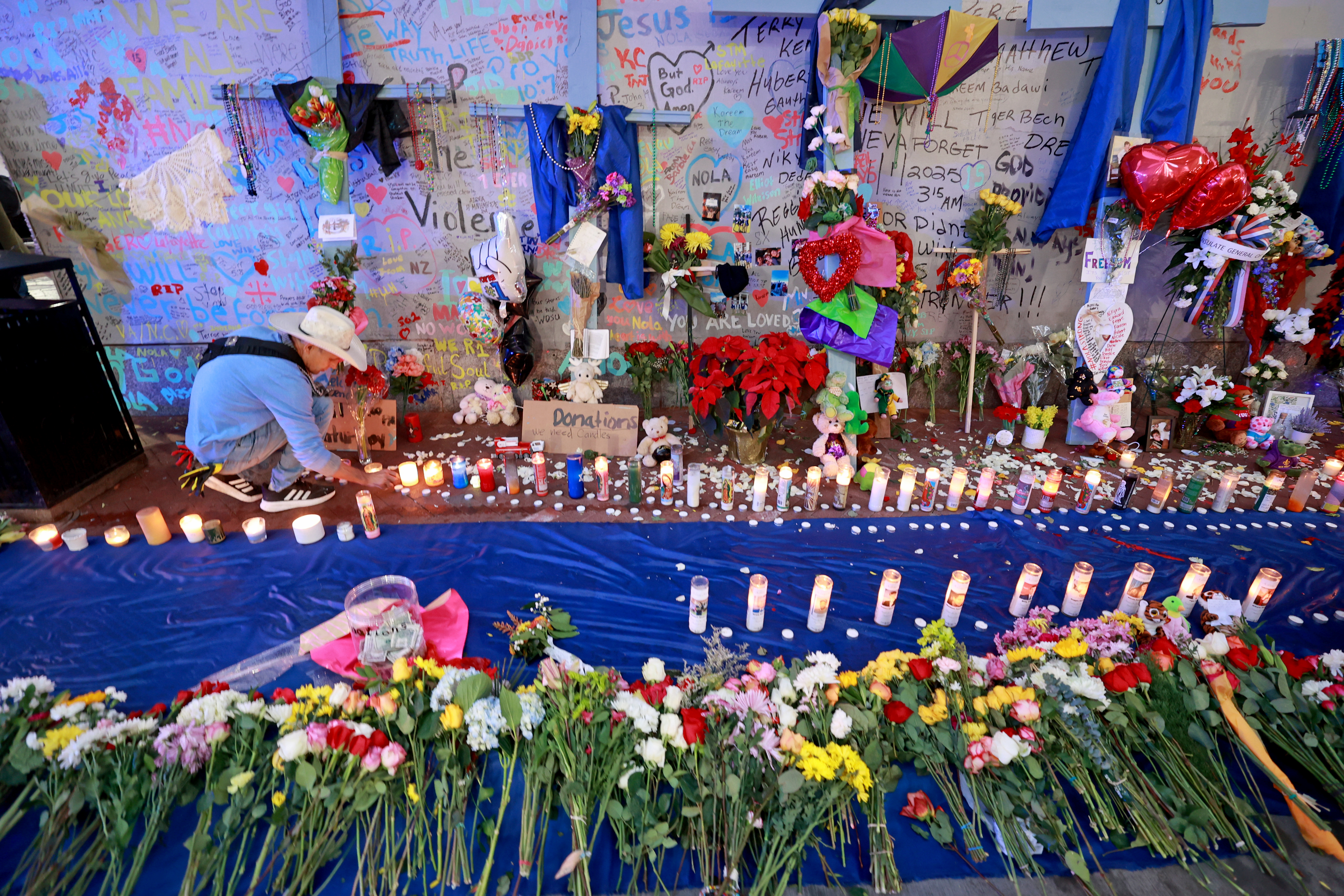President Donald Trump's son-in-law and senior adviser, Jared Kushner, flew to Iraq with the U.S. Joint Chiefs of Staff chairman Gen. Joseph Dunford on Monday.
Kushner's travel plans initially were revealed late Sunday by a Trump administration official who said Kushner wanted to see the situation there for himself and show support for Baghdad's government.
The official said Kushner had already arrived. But when presented with information indicating that was not accurate, the official said the timing of his arrival was unclear but confirmed that Kushner was scheduled to be in Iraq Monday. Such visits from high-ranking officials are typically kept secret out of security concerns.
The administration official who provided the information late Sunday wasn't authorized to speak about confidential meetings by name and demanded anonymity.
Such trips are usually kept quiet, with the cooperation of journalists, until the officials arrive in order to ensure maximum security. For the military and security professionals managing the mission, the public disclosure of the unannounced trip was a security breach. Gen. Joseph Dunford, the Joint Chiefs of Staff chairman, also was on board.
Although the plane landed safely in Baghdad on Monday, the Iraqi capital is hardly a secure location, having suffered countless extremist attacks over the years. The threat is no less acute today as Iraq wages a bitter battle to try to rid the Islamic State from its territory. For trips to the city, the military seeks to avoid public mention of plans ahead of time so extremist groups can't plot attacks.
"It's been longstanding practice to strictly avoid announcing the visits of senior U.S. officials in advance of their travels to warzones," said George Little, a Pentagon and CIA press secretary for Leon Panetta, who managed both departments under President Barack Obama. "The main reason is obvious. You want to avoid giving the enemy any information that could help them to target these delegations, especially in areas where the battle lines aren't clear on the map."
U.S. & World
The day's top national and international news.
Kushner's Monday arrival with Dunford and Thomas P. Bossert, a presidential assistant for homeland security and counterterrorism, was announced by Capt. Greg Hicks, a spokesman for Dunford.
The trip began against a backdrop of an ongoing investigation into civilian deaths in an area of Mosul near the site of an air-strike by U.S.-led coalition forces last month.
"Gen. Dunford invited Mr. Kushner and Mr. Bossert to meet with Iraqi leaders, senior U.S. advisors, and visit with U.S. forces in the field to receive an update on the status of the counter-ISIS (an acronym for the Islamic State group) campaign in Iraq and Syria," Hicks said. The spokesman added that Kushner was "traveling on behalf of the president to express the president's support and commitment to the Government of Iraq and U.S. personnel currently engaged in the campaign."
Kushner's West Wing portfolio is robust. He has been deeply involved with presidential staffing, recently launched a task force meant to modernize government using lessons drawn from the private sector, and has played the role of shadow diplomat, advising on relations with the Middle East, Canada and Mexico.
And though Kushner had no previous diplomatic or government experience, Trump also tasked him with trying to broker a peace agreement between Israel and the Palestinians.
"If you can't produce peace in the Middle East, nobody can," Trump told Kushner at a gala a few days before his inauguration.
Kushner was also the latest Trump associate to be swept up into the ongoing probe into contacts with Russian officials. The White House confirmed last week that he had volunteered to be interviewed by the Senate intelligence committee. North Carolina Sen. Richard Burr, the committee's chairman, said that Kushner would likely be under oath and would submit to a "private interview" about arranging meetings with the Russian ambassador and other officials.
Kushner is married to Trump's oldest daughter, Ivanka. He was expected to have a major role in meetings later this week between Trump and Chinese President Xi Jinping at Trump's winter retreat in Palm Beach, Florida.
His visit marks an early foray for the Trump administration into the situation in Iraq and came just two weeks after Iraqi Prime Minister Haider al-Abadi said he was assured by the president the U.S. will accelerate its support for his country's struggle against the Islamic State group.
Al-Abadi met with Trump and Kushner in Washington recently and said he had the impression that the United States would take a more aggressive approach, although he did not say what that might entail.
Defense Secretary Jim Mattis recently presented Trump with the outlines of a comprehensive approach to defeating IS and other extremist groups on a global scale, but specifics have yet to be worked out. Officials have indicated that the approach is unlikely to depart radically from the Obama administration's strategy, at least with regard to ongoing efforts in Iraq and Syria.
Iraq was part of the Trump administration's original travel ban but was removed from the revised version after a request from the Pentagon and the State Department highlighting Iraq's key role in fighting the Islamic State. The second travel ban, which restrictions immigration from six Muslim-majority countries, has been halted by a federal court. The U.S. Justice Department has announced an appeal.
Associated Press writers Jonathan Lemire, Lolita C. Baldor, Vivian Salama and Catherine Lucey contributed to this report.



